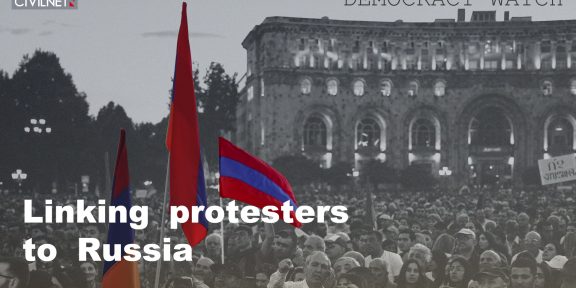By Emil Sanamyan, USC Institute of Armenian Studies
According to available polling data, two former foreign ministers Grigol Vashadze (2008-12) and Salome Zurabishvili (2004-5) are on track to top the October 28 vote for president of Georgia. Vashadze is backed by the United National Movement of exiled ex-president Mikhail Saakashvili and Zurabishvili by the ruling Georgia Dream coalition informally led by businessman Bidzina Ivanishvili.
Other candidates in the race include two former parliament speakers David Bakradze and David Usupashvili, as well as marijuana legalization proponent Zurab Japaridze and veteran populist Shalva Natelashvili, for whom this will be the third presidential election. If no candidate wins more than fifty percent of the vote, which now appears likely, two top candidates will go to the second round.
Since Georgia is a parliamentary republic, its presidential elections will not determine the country’s next political leader. But with president nevertheless elected through a direct election, the vote will become a referendum on the ruling Georgia Dream coalition that has been in power since 2012 and most recently re-elected two years ago. The outcome could also see an election of the first female president in the Caucasus and open the away for the return of Saakashvili to Georgian politics.
The ex-president – currently living in exile in the Netherlands – plans to return to Georgia next month “to mark his wedding anniversary,” his wife Sandra Roelofs said on October 22. Saakashvili was convicted in absentia for “abuse of office” and now faces additional criminal charges of “authorizing” the reputed assassination of his key political opponent. Saakashvili was also stripped of Georgian citizenship after he joined the Ukrainian government; he had since was forced to leave Ukraine as well after falling out with its leadership.
Announcing his candidacy, Vashadze pledged to push for early parliamentary elections. But under Georgia’s constitution, president can only dissolve the parliament after it votes no confidence in prime minister, or in other words any dissolution would require support of parliamentary majority now held by the Georgian Dream.
It would, however, be in Vashadze’s power to pardon Saakashvili and reinstate his citizenship. Though it is unclear if this would make the ex-president eligible to run for parliament in the next election, since he has already been convicted and has not been a citizen for the last several years. But Saakashvili could still lead his political party without a formal role, as Ivanishvili has been doing.
Both Vashadze and Zurabishvili had eligibility challenges of their own. A former Soviet diplomat, Vashadze lived mostly in Russia until 2003 and did not renounce his Russian citizenship until 2009. For her part, Zurabishvili was born in France and was its ambassador to Georgia until 2004; she did not renounce her French citizenship until earlier this year and in 2013 she was barred from taking part in presidential elections on grounds that Georgian law does now allow for dual citizenship.
Although previously opposed to Saakashvili and strongly backed by Ivanishvili, Zurabishvili is not a member of the ruling party and could potential serve to balance the power of the sitting government. In that she would be following the precedent set by the outgoing president Giorgi Margvelashvili, who was also elected with the Georgian Dream’s backing.
















